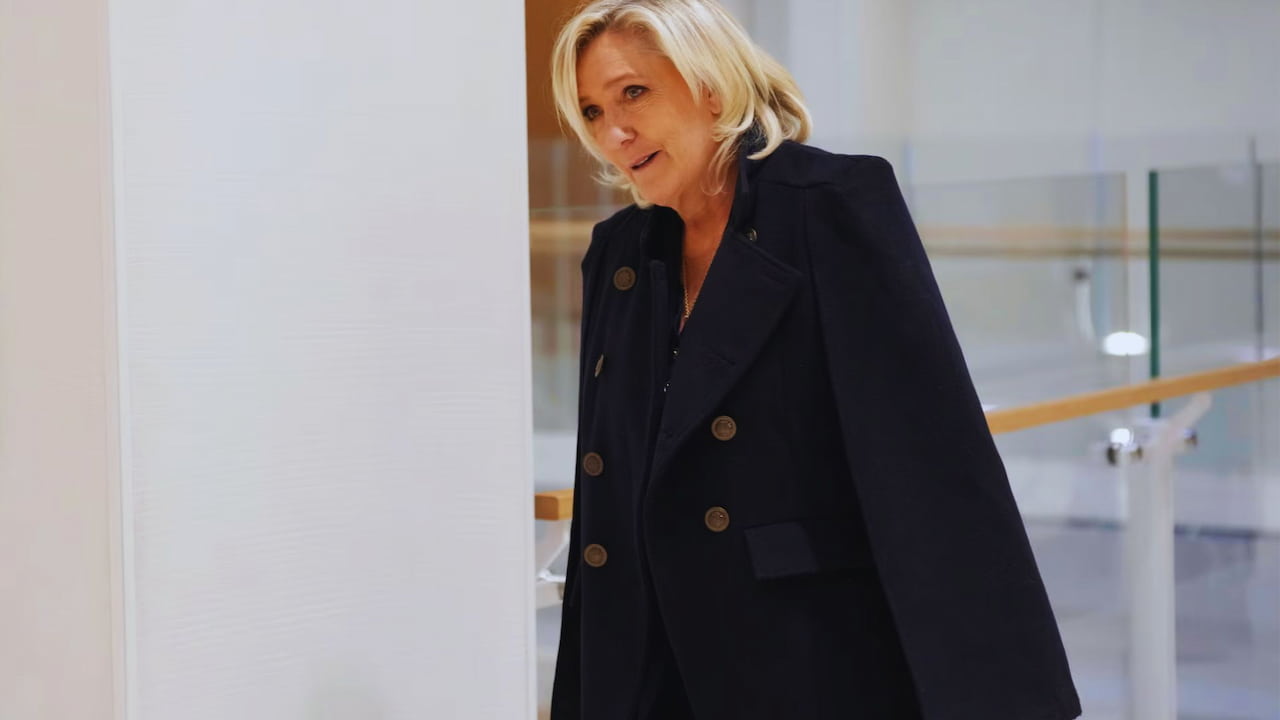Political Storm Erupts as French Prosecutors Push for Le Pen’s Political Ban
In a dramatic turn of events that could reshape French politics, prosecutors have delivered a stunning blow to Marine Le Pen, demanding a prison sentence and political ban that could derail her 2027 presidential ambitions. The far-right leader faces serious allegations of misusing European Union funds in a case that has captured national attention.
Key developments unfolded Wednesday at the Paris courthouse, where prosecutors requested a two-year prison term and a five-year ban from political office for Le Pen. The charges stem from accusations that her party, the National Rally (formerly National Front), wrongfully used EU funds meant for parliamentary assistants to instead pay party staff between 2004 and 2016.
The financial stakes are significant, with prosecutors seeking a €300,000 fine against Le Pen personally, while the estimated total misused funds reach €4.5 million. The case involves 25 party officials alongside Le Pen, highlighting the broad scope of the alleged scheme.
“These acts are unprecedented because of their scope, duration, and systematic nature,” declared prosecutor Louise Neyton, emphasizing the case’s threat to democratic principles. The prosecution’s aggressive stance signals their determination to hold political leaders accountable for financial misconduct.
Le Pen, who has consistently denied all charges, responded defiantly to the prosecution’s demands. “It’s an outrage,” she declared outside the courtroom, accusing prosecutors of attempting to “ruin” her party and “deprive the French people of their right to choose their leaders.” Her passionate defense underscores the political stakes of the trial.
The timing is particularly crucial given Le Pen’s rising political influence. After securing 41.45% of the vote in the 2022 presidential election against Emmanuel Macron, her National Rally has emerged as the largest opposition party in the National Assembly. The current legal battle could significantly impact her political future, especially her anticipated 2027 presidential bid.
The trial has revealed complex details about the party’s operations. Prosecutors argue that supposed EU parliamentary assistants rarely visited Brussels and primarily worked on party matters in Paris. Le Pen counters that these roles naturally overlapped with political activities, making the distinction unclear.
Jordan Bardella, the current RN chairman, has dubbed the prosecution’s demands “an assault on democracy,” reflecting the party’s stance that the case is politically motivated. This narrative has resonated with Le Pen’s supporters, who view the trial as an establishment attempt to silence their movement.
The proceedings have showcased Le Pen’s legal background, as she actively participates in her defense. Often seen in the front row, she closely monitors testimonies and frequently consults with her legal team, demonstrating her personal investment in the outcome.
The trial, set to conclude on November 27, raises broader questions about political accountability and the use of EU funds. Patrick Maisonneuve, representing the European Parliament, expressed support for the prosecution’s position, suggesting the evidence strongly supports the fraud allegations.
As France watches this legal drama unfold, the implications extend beyond Le Pen’s personal fate. The case highlights the ongoing tension between national political movements and European institutions while potentially reshaping the French political landscape ahead of the next presidential election.
The court’s president, Bénédicte de Perthuis, has emphasized that, despite its political implications, the verdict will rest solely on legal evidence regarding the proper use of parliamentary funds. This approach aims to maintain judicial independence in a case with far-reaching political consequences.
As the French political establishment awaits the verdict, the outcome could either strengthen Le Pen’s narrative of persecution or deal a significant blow to her political future. Either way, this trial marks a crucial moment in French political history, testing the balance between political accountability and democratic representation.
